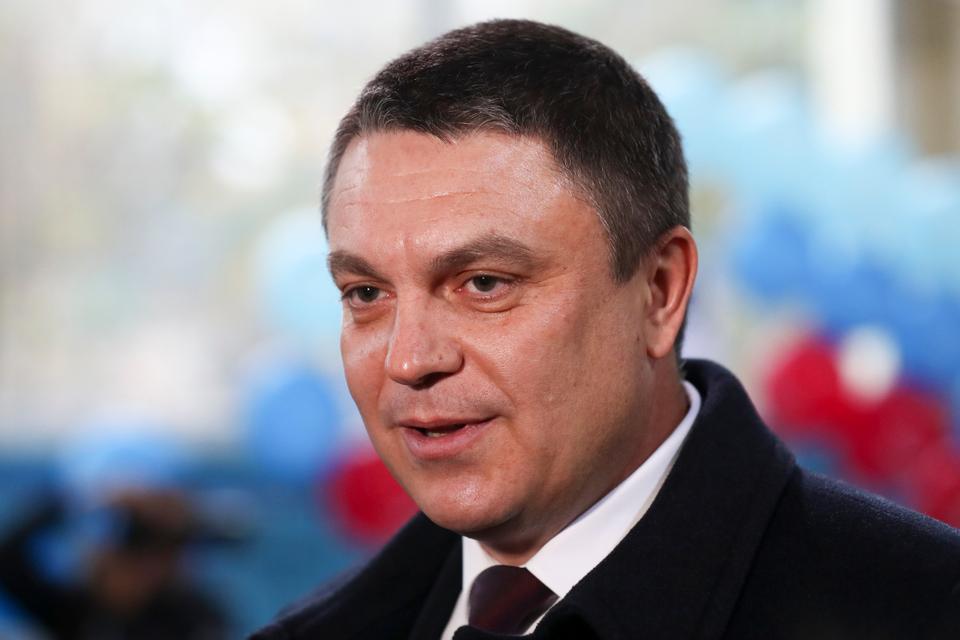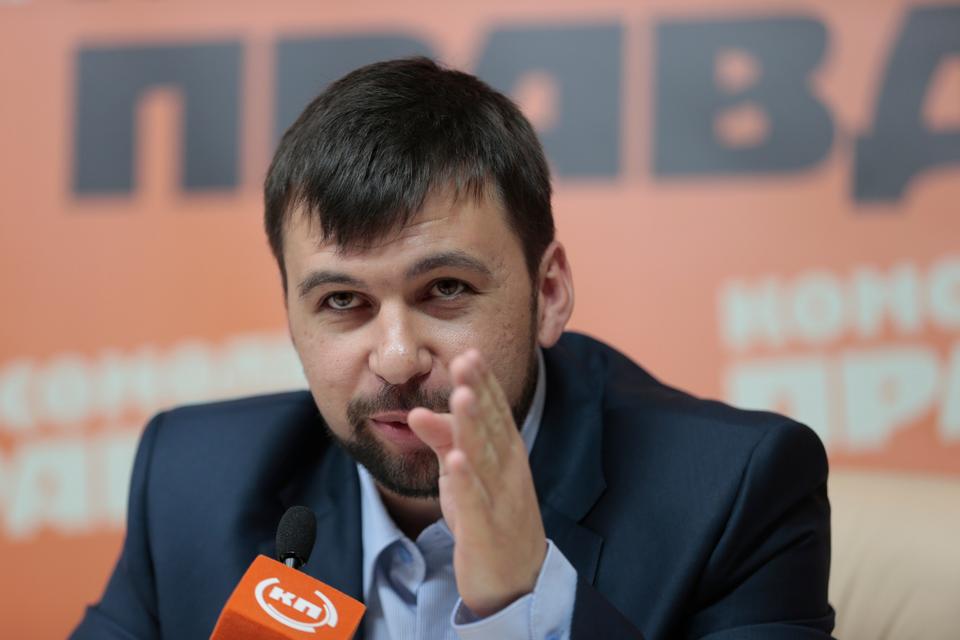Denis Pushilin and Leonid Pasechnik came into the spotlight after Russia recognised the self-proclaimed republics. Here's a quick look at the two leaders and their likely Russian ties.
Even when war clouds gathered over Ukraine, two major players in this great game — Denis Pushilin and Leonid Pasechnik — remained under the radar, with the spotlight mainly on Russian President Vladimir Putin’s sabre-rattling and the West’s threats of retaliation.
But it is now clear how the two leaders of Ukraine’s breakaway Luhansk and Donetsk regions have been carefully cultivated by Moscow over the years. It is not surprising that within days of Putin recognising the “sovereignty” of Luhansk and Donetsk on February 21, Russian tanks rolled into Ukraine in what would soon become a full-scale assault on Ukraine.
It is also not a mere coincidence that Pushilin and Pasechnik appealed to Putin to recognise the “independence” of Luhansk and Donetsk, a primarily Russian-speaking region in eastern Ukraine referred to as ‘Donbas’.
“They are simply puppets of the Kremlin and the recent events have only confirmed this once again,” Konstantin Skorkin, a political analyst who is a Luhansk native, told the daily Guardian newspaper.
Since 2014, when the Kremlin is said to have rolled out its geopolitical ambitions through the Maidan Revolution—a series of violence events that ultimately led to the ouster of then Ukrainian president Viktor Yanukovych—the roles played by Pushilin and Pasechnik have been discussed sporadically, mainly on the degree of their allegiance to Moscow.
Since the formation of the self-proclaimed proto-states of Luhansk and Donetsk, the region has been particularly dependent on Russian aid due to their economic collapse.
During that time, several local leaders appeared as authorities of the two separatist states in the Donbas region.
According to some analysts, the Kremlin had since performed systematically to replace the region’s leaders with trusted loyalists and Pushilin and Pasechnik seem to be the chosen ones.
Here's a close look at these two separatist heads amid the growing conflict in Ukraine.

Leonid Pasechnik
Pasechnik had a long career in the Ukrainian security forces, rising to the rank of lieutenant colonel before the 2014 Maidan Revolution, also known as the Revolution of Dignity
He initially gained national prominence in a 2006 special operation when he thwarted a bid to smuggle 7.24 million Russian rubles in cash (over $84 million) across the Russian-Ukrainian border.
Pasechnik is said to have declined a bribe from the smugglers during the operation and was awarded a medal for his professional integrity by the former pro-Western Ukrainian President Viktor Yushchenko.
When he was in charge of the state security unit of the self-proclaimed Luhansk people's republic in 2014, Pasechnik picked the side of pro-Russian separatists like numerous other generals in the Ukrainian security forces in the Donbas.
“He operated the main prisons and the so-called isolation cells, cellars where pretty sinister stuff happened,” said Nikolaus von Twickel, former OSCE staff member in Donetsk, referring to several media reports on torture of separatist opponents.
In 2017, Pasechnik triumphed over Igor Plotnitsky, the then leader of Luhansk, after a violent power struggle.
He remained away from the spotlight till Putin decided to pull the rug from under Ukraine, with Pasechnik eagerly holding one end and giving it a mighty tug.

Denis Pushilin
The younger of the two, little is known about Pushilin's early days in the Donbas.
He rose to popularity in 2011 while working for the MMM group, a prominent Russian group involved in one of the world’s largest Ponzi scams.
“He is your typical wheeler-dealer kind of guy,” said Von Twickel.
Pushilin joined the separatist cause in 2014, but unlike some of the other Donetsk commanders, he never saw any large-scale military action. He frequently wore a suit in public, a practice that other rebels criticised.
However, after the mysterious assassination of Alexander Zakharchenko, the then leader of the self-proclaimed Donetsk people’s republic, Pushilin appeared to have acquired the Kremlin's trust as the region's leader.
At the time, the Ukrainian security service said that Zakharchenko had died as a result of a Russian special forces operation.
Instead of being an independent state, Pushilin has declared his longing for the territory to be a part of a "renewed Russian empire”.
“Donbas should be part of the Russian empire. I don’t see anything bad in imperialism,” he is quoted to have said then.
Social media is bold.
Social media is young.
Social media raises questions.
Social media is not satisfied with an answer.
Social media looks at the big picture.
Social media is interested in every detail.
social media is curious.
Social media is free.
Social media is irreplaceable.
But never irrelevant.
Social media is you.
(With input from news agency language)
If you like this story, share it with a friend!
We are a non-profit organization. Help us financially to keep our journalism free from government and corporate pressure












0 Comments